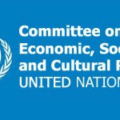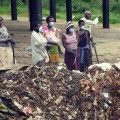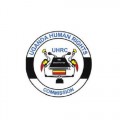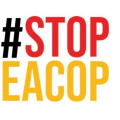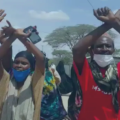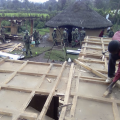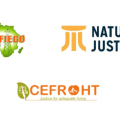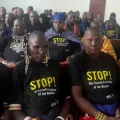This past February, a delegation of 11 Latin American civil society organizations from the Collective on Chinese Finance and Investment, Human Rights and Environment (CICDHA) and representatives of affected communities, in collaboration with the International Service for Human Rights (ISHR) and FIAN International, participated in the third evaluation of the People’s Republic of China (PRC) by the United Nations (UN) Committee on Economic, Social and Cultural Rights (CESCR), in Geneva. The organizations requested the CESCR to recommend that the PRC respects, protects and fulfills its extraterritorial obligations related to economic, social, cultural and environmental rights contained in the ESCR Covenant and other UN instruments it has signed and recognized. This obligation includes the activities of Chinese state-owned and semi-state-owned companies and banks, as well as projects in which they participate in Latin America.
Last January, CICDHA and ISHR submitted to CESCR a report documenting the impacts of Chinese corporate activities in 14 projects developed in 9 Latin American countries: Argentina, Bolivia, Brazil, Chile, Colombia, Ecuador, Mexico, Peru and Venezuela. The report demonstrates violations of the rights of indigenous peoples, the right to health, a healthy environment, water, food, housing, labor rights, and various civil and political rights, which are protected by UN treaties, covenants and conventions. Furthermore, the report states that “…China is one of the largest investors in Latin America and has an enormous responsibility to avoid the negative effects of the projects in which its companies participate or which are financed by its banks”.
Marco Antonio Gandarillas, from Latinoamérica Sustentable and member of CICDHA, said “All the projects analyzed are located in areas of high social conflict, great environmental and cultural diversity, particularly in indigenous territories; it is for this reason that the evaluation of the ESCR Committee is crucial for the future of Chinese investments and financing in the region”.
The Collective on Chinese Finance and Investment Human Rights and Environment (CICDHA in Spanish), has been working since 2018, documenting cases and reporting to various international bodies on the systematic non-compliance of China’s extraterritorial human rights obligations in its business activities in Latin America.
During the dialogue with the Chinese state representatives on February 15, CESCR President Michael Windfuhr echoed civil society’s concern by posing the following questions:
“What kind of binding regulations does China put in place to ensure that state-owned companies do not further undermine the human rights of people in other countries? How do victims of human rights abuses [by Chinese business actors operating abroad] access avenues of accountability or grievance mechanisms? How do they assess environmental, social and human rights impacts and mitigate risks and avoid harm [from Chinese funding and international cooperation]?”
The Concluding Observations of March 3rd, 2023, show that the CESCR welcomed several of the suggestions made by CICDHA and expressed its concern “about the insufficiency of the legal obligations of companies under the jurisdiction of the State party to exercise due diligence on human rights” and recommended that the PRC ensure that companies and banks abroad “are held accountable for violations of economic, social and cultural rights, paying special attention to the territorial rights of indigenous and peasant farmers and the environmental impact…. and that follow-up and control mechanisms be established to investigate and sanction their harmful activities”.
The CESCR also asked the PRC to ensure that victims of abuses have access to effective complaint mechanisms and adequate redress. In addition, it urged the PRC to take steps, in particular with companies involved in the extraction of commodities and construction of infrastructure, “to ensure the legal accountability of corporate entities…in relation to violations of economic, social and cultural rights in the context of their activities abroad.”
The CESCR’s recommendations help pressure the PRC to establish mechanisms to monitor, investigate and sanction human rights abuses by Chinese business and financial activities outside Chinese territory. In addition, they seek to have the PRC enact policies that oblige Chinese companies and financiers to adopt measures to repair, redress and remedy current impacts and to establish monitoring mechanisms to prevent future impacts.
“Having the Committee recommend that Chinese companies and banks be held legally responsible for human rights abuses arising from their operations abroad is not only a step forward in protecting Chinese investment, but also in guaranteeing human rights in any context of transnational capitalism,” said Sofía Jarrín of Amazon Watch, a CICDHA member organization.
CICDHA welcomes the concluding observations of the CESCR, and considers the results of the assessment to be a substantial step forward towards greater accountability for human rights.
Source: amazonwatch.org
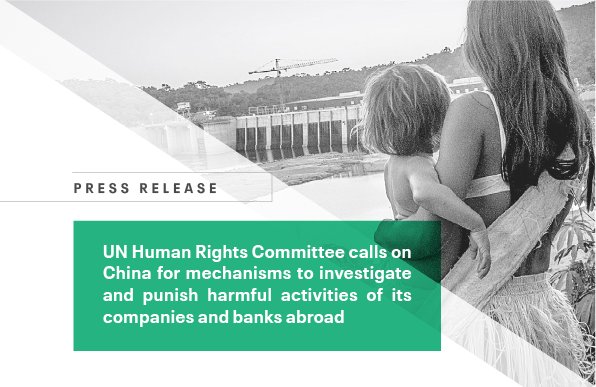

 MEDIA FOR CHANGE NETWORK1 week ago
MEDIA FOR CHANGE NETWORK1 week ago
 MEDIA FOR CHANGE NETWORK2 weeks ago
MEDIA FOR CHANGE NETWORK2 weeks ago
 FARM NEWS1 week ago
FARM NEWS1 week ago
 MEDIA FOR CHANGE NETWORK4 days ago
MEDIA FOR CHANGE NETWORK4 days ago
 MEDIA FOR CHANGE NETWORK4 days ago
MEDIA FOR CHANGE NETWORK4 days ago
 MEDIA FOR CHANGE NETWORK1 day ago
MEDIA FOR CHANGE NETWORK1 day ago
